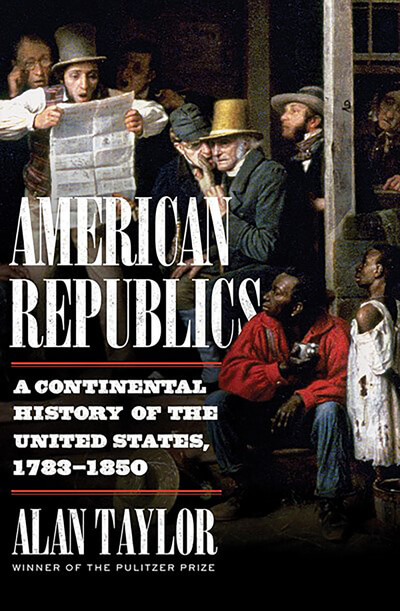In 1832, Chief Justice John Marshall reviewed the history of America and concluded, “The Union has been preserved thus far by miracles. I fear they cannot continue.” Alan Taylor, professor of history at the University of Virginia and two-time Pulitzer Prize winner, explores the complex and often tragic history behind Marshall’s thinking in his sweeping, beautifully written, prodigiously researched and myth-busting American Republics: A Continental History of the United States, 1783–1850.
Contrary to popular belief, most of the Founding Fathers didn’t intend to create a democracy. Instead, they designed a national republic to restrain state democracies. Additionally, the founders didn’t agree on principles or goals for their republic, and most believed that preserving slavery was the price to pay for holding the fragile Union together.
Taylor’s powerful overview explores this fierce struggle between groups and governments as settlers expanded the country westward. Any challenges to the supremacy of white men or their reliance on slavery were met with threats of secession by enslavers and their political allies. Breaking treaties with, dispossessing and killing Native Americans were commonplace, and those who spoke out against prevailing ways often suffered strong rebukes.
When New York journalist John L. O’Sullivan coined the phrase “manifest destiny” in 1845, he justified annexing Texas and Oregon as part of a moral empire based on citizen consent, in contrast to European empires built from violent conquest. O’Sullivan overlooked a lot. For example, slavery became more entrenched and profitable as the country expanded. By 1860, the monetary value of enslaved people was greater than that of the nation’s banks, factories and railroads combined. Slavery divided the country, but racism united most white people. Even in the North, free Black Americans couldn’t serve on juries, weren’t hired for better-paying jobs and were denied public education.
Anyone interested in American history will appreciate this richly rewarding book.




